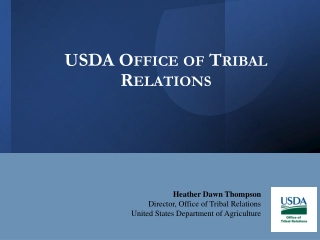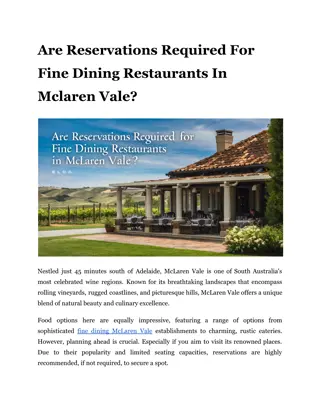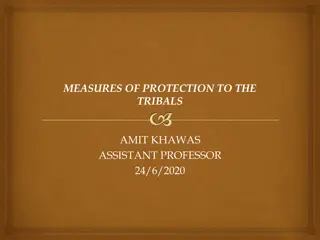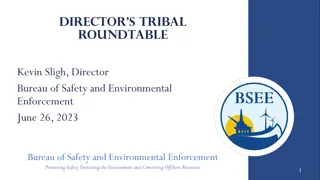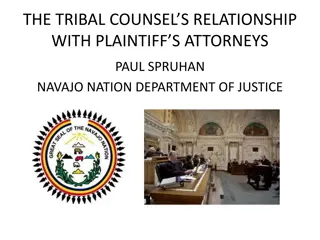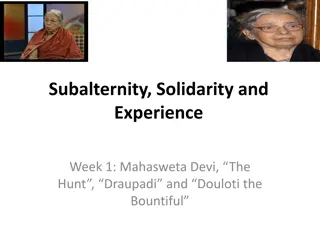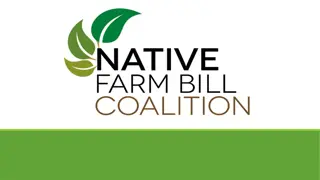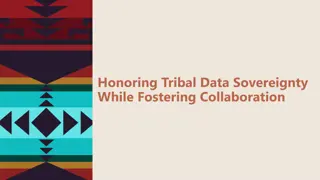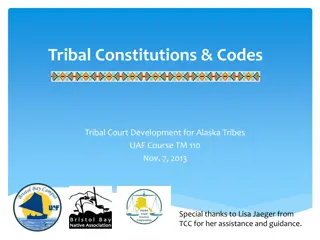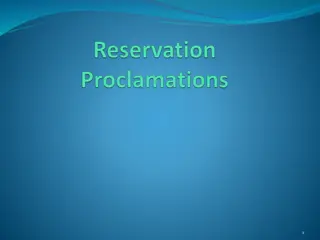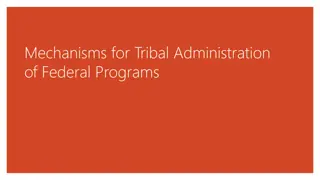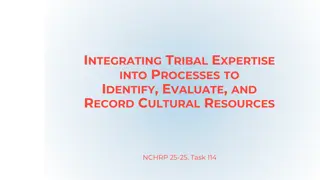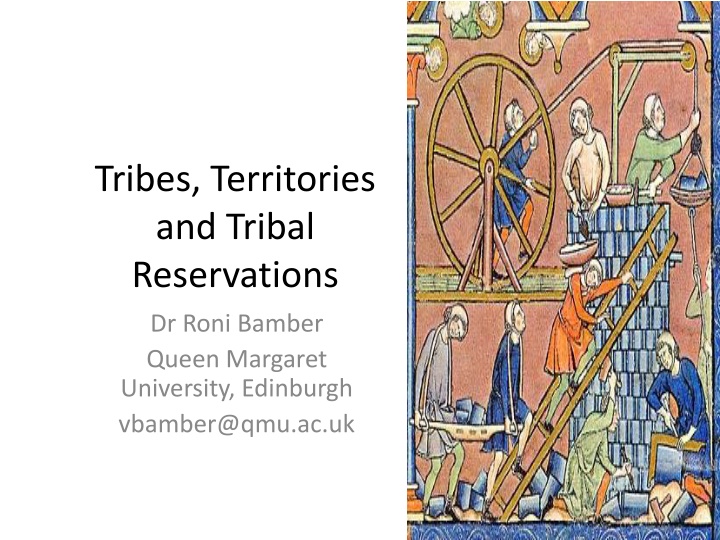
Rethinking Academic Disciplines in Higher Education: A Multidisciplinary Perspective
Explore the evolution of academic disciplines in higher education through the lens of tribes, territories, and tribal reservations. Delve into the updated notion of tribes and territories, examples from various disciplines, and discussions on changing academic dynamics. Discover the nuances of epistemologies, signature pedagogies, threshold concepts, and more as part of a complex educational landscape. Understand the argument against epistemological essentialism and how academics continuously reshape disciplinary norms.
Download Presentation

Please find below an Image/Link to download the presentation.
The content on the website is provided AS IS for your information and personal use only. It may not be sold, licensed, or shared on other websites without obtaining consent from the author. If you encounter any issues during the download, it is possible that the publisher has removed the file from their server.
You are allowed to download the files provided on this website for personal or commercial use, subject to the condition that they are used lawfully. All files are the property of their respective owners.
The content on the website is provided AS IS for your information and personal use only. It may not be sold, licensed, or shared on other websites without obtaining consent from the author.
E N D
Presentation Transcript
Tribes, Territories and Tribal Reservations Dr Roni Bamber Queen Margaret University, Edinburgh vbamber@qmu.ac.uk
Trowler, Saunders and Bamber (Eds) (2012) Tribes and territories in the 21st-century: Rethinking the significance of disciplines in higher education
What will I cover? Updated notion of Tribes and Territories Some examples from different disciplines The Social Practice Theory perspective on this Questions about The value of metaphor What is changing in your tribe
Literature to support strength of epistemologies in disciplines Biglan (1973) - epistemological paradigms Neumann (2002) Biglan s paradigms mapped onto L&T dimensions Lattuca and Stark (1994) [Biglan again] - unequivocal patterns in knowledge conceptions and practices Altho all recognised complexity
But now more nuanced Epistemology only part of the mix. Eg Signature pedagogies (Shulman, 2005) Ways of Thinking and Practising (McCune and Hounsell, 2005) Threshold concepts (Meyer and Land, 2003) Mix of influences in identities (Henkel, 2000) Context and personal ideology (Fanghanel, 2009) Teaching and Learning Regimes (Trowler and Cooper, 2002) Shifting disciplinary boundaries (Malcolm and Zucas, 2009)
Argument of the book Epistemological essentialism doesn t reflect the dynamic, complex nature of HE work Barnett (2000) supercomplexity academics work together in epistemological pandemonium But that pandemonium has patterns, key features From SPT perspective Intellectual territory of the discipline (epistemology) academic identities, discourse, multiple cultural configurations, social context
Because... Academics not in an inflexible disciplinary framework They re constantly reworking disciplinary norms Recreating what they do, and how Individuals both construct and enact culture Not passive recipients Key = changing nature of disciplines over time And constant influence of other, non- epistemological, factors
So: Disciplinary knowledge systems fluid, dynamic and constantly nudged by non- disciplinary policies, initiatives and HE trajectories Importance of context
Four Tribes for 21C 1. Ashwin et al (Sociology) kinds of knowledge produced, who has access to these different kinds of knowledge, and how different groups in society gain access to particular kinds of knowledge 2. Winberg (Engineering) ways in which L&T conducted in engineering relationship between academic knowledge and professional knowledge knowledge claims between and across fields, along epistemic and social axes
2 Engineering (ctd) Academic world: the epistemic relation (eg knowledge of mathematics or physics) is dominant In professional practice social relation (eg interpersonal communication, or the ability to mediate technical information for particular clients) comes to the fore Different attribution of value to L&T activities in each world Eg dissent over nature of student projects + simulation of real world practices
Raises questions about... Identity of engineering academics Engineers, academics, strange mix of both? Identity of engineering fragmented identities visible between engineering academics with different specialisations
Changes over time 3 Laiho (Nursing Science) what makes a discipline what it is, and how its place in universities mutates over time in response to a number of influences 4 Kleiman (Performing Arts) Problematises performing arts (= dance + music + drama) How trajectories of subjects over time has shaped their place in HE, and identities of academics involved
4 Nursing - Changes to disciplines over time: dimensions Knowledge base; eg academic base v clinical practice Chronologically, over time: maturity of discipline Status of discipline: legitimacy as academic subject Geographically: where different nursing specialisms taught In practices: eg presence or not of research Agents of discipline: eg are there professors? Shifting identities Intersections / permeable boundaries Links to other disciplines Academic / professional work and discourses Disciplinary profile: international, national or local Other dimensions you can think of?
From SPT perspective: Identity Academic identities = fluid, dynamic, reconstructing Di Napoli and Barnett (2008: 4): current HE = a site of many identities-in-the-making Eg Kleiman landscape of the [different] disciplines and their various interlocking and interconnecting communities of practice consists of a complex, multi- faceted, multi-layered network of identities, relationships, values, discourses and practices . This leads to the adoption of multiple, metamorphosing identities within the discipline Example of pt artist / academic
SPT: Discourse Expresses and shapes social reality and practices How to help students enter our disciplinary world? Help them build discourses (Shreeve, 2009; Kapp and Bangeni, 2009) Help them work between practice and academic contexts (Baxter Magolda, 2008)
SPT: Multiple cultural configurations Vertically, single disciplines have different manifestations in different institutions Boundary-crossing (Tuomi-Gr hn et al, 2003) Horizontally, subject groupings within institutions Externally, academic + professional worlds People in universities interact in their various locations, producing different sets of social practices and cultural configurations in each locale
SPT: Social context Tribes and territories notion assumes a semi- universal experience, regardless of institution But contextual factors influence what goes on in any particular location Eg elite v non-elite institutions (Ashwin et al)
When is value of tribes concept most helpful? Analysis of identity gaps between subject groups Eg Laiho s Nursing lecturers aren t Physios or other allied health specialists between what academics do, and what students do Eg Ashwin et al re Sociology Analysis of identity drift Eg Kleiman re academics focusing on generic skills / employability agendas Battle ??? For Political identity Eg the fight for arts and humanities
2 Qs for you 1 What factors make your tribe what it is? 2 What is affecting / changing this?
The power of metaphor Tribes and Territories Roots DNA (Kleiman) Your alternative metaphors?
Factors in complexity of Territories Eg Policy initiatives (enterprise, employability, modular programmes, credit accumulation)

